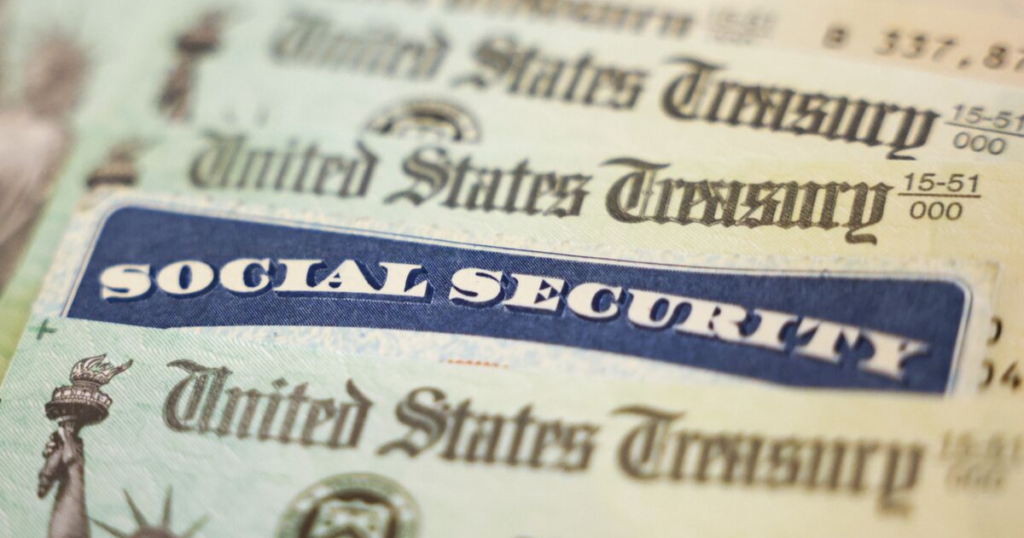
Social security is a federal program in the United States that provides retirement, disability, and survivor benefits to workers and their dependents. To qualify for these benefits, workers must pay social security taxes (FICA) on their earnings and accumulate enough work credits. Work credits are based on the amount of a worker’s annual earnings and the number of years they contributed to the social security system.
One way to check if you are on track to receive social security benefits is to get your social security income statement (Statement). The Statement is an official document that shows your earnings history, the work credits you have earned, the estimated benefits you and your family may receive, and other information about the social security program. The Statement can help you plan for your retirement, verify the accuracy of your earnings record, and protect your identity from fraud.
Related articles
- How to Choose, Apply and Manage a Car Loan Online
- What Is Credit Management? 3 Ways To Improve Your Credit Management Process
- What Is A Good Credit Score?
There are two ways to get your Statement: online or by mail. To get your Statement online, you need to create a personal account on the [social security website]. You will need to provide some personal information, such as your name, date of birth, Social Security number, email address, and phone number. You will also need to answer some security questions to verify your identity. Once you create your account, you can access your Statement anytime and download or print it as needed.
To get your Statement by mail, you need to fill out a [request form] and mail it to the address provided on the form. You can also call 1-800-772-1213 or visit your local social security office to request a paper copy of your Statement. You should receive your Statement by mail within two to four weeks after you submit your request. The social security administration (SSA) also mails Statements to workers who are 60 or older and who are not receiving social security benefits or have not created an online account.
Getting your Statement is an important step to ensure that you are eligible for social security benefits and that your earnings record is correct. Your earnings record determines the amount of benefits you will receive, so it is essential to review it regularly and report any errors or missing information to the SSA as soon as possible. Your Statement also provides valuable information about the future of the social security program and how it may affect your retirement plans.
Here is a checklist of who can apply for social security:
You are a citizen or national of the United States. This means that you were born in the United States or one of its territories, or that you were naturalized as a U.S. citizen. You can prove your citizenship or nationality with one of the following documents:
- A birth certificate issued by a civil authority in the United States or a U.S. territory.
- A valid or expired US passport.
- A naturalization certificate.
- A citizenship certificate.
Citizenship or nationality is one of the requirements to qualify for Social Security benefits. If you are not a citizen or national of the United States, you may be eligible if you are a qualified alien or fall into one of the alien categories granted by the Department of Homeland Security (DHS) as explained in #2.
You are a noncitizen who is a qualified alien or in one of certain alien classifications granted by the Department of Homeland Security (DHS). This means that you are not a citizen or national of the United States, but you have a legal status that allows you to live and work in the country. You can prove your noncitizen status with one of the following documents:
- A permanent resident card (green card).
- An employment authorization document (work permit).
- A refugee or asylee document.
- A visa or other immigration document.
A noncitizen status is another requirement to qualify for social security benefits. If you are a noncitizen, you must be a qualified alien or in one of the following categories of aliens granted by the DHS:
- Lawfully admitted for permanent residence (LPR).
- Granted asylum.
- Admitted as a refugee.
- Paroled into the United States for at least one year.
- Withholding of deportation or removal granted.
- Cuban/Haitian entrant.
- Conditional entrant (granted before 1980).
- Battered spouse, child, or parent with a pending or approved petition under the Violence Against Women Act (VAWA).
- Victim of trafficking and his or her spouse, child, sibling, or parent with a pending or approved petition under the Trafficking Victims Protection Act (TVPA).
These categories of noncitizens are eligible for social security benefits if they meet the other criteria, such as income, resources, disability, and work credits. However, some noncitizens may be subject to additional restrictions or limitations depending on their country of origin, date of entry, and type of benefit. For more information on how noncitizen status affects social security eligibility, you can visit the [social security website] or contact the SSA directly.
You have little or no income and resources. This means that you do not have enough money or assets to meet your basic needs, such as food, clothing, shelter, and medical care. You can prove your income and resources with documents such as:
- Pay stubs, tax returns, bank statements, or other records of your earnings and savings.
- Receipts, bills, leases, mortgages, or other records of your expenses and liabilities.
- Statements, deeds, titles, contracts, or other records of your property and assets.
Income and resources are one of the criteria to qualify for social security benefits. The social security administration (SSA) has different income and resource limits for different types of benefits. For example:
- To be eligible for Supplemental Security Income (SSI), a program that provides cash assistance to people who are aged, blind, or disabled and have low income and resources, you must have less than $2,000 in resources (or $3,000 for a couple) and your monthly income must be below a certain level that varies by state.
- To be eligible for Social Security Disability Insurance (SSDI), a program that provides benefits to workers who have a disability that prevents them from working and have enough work credits, you must have less than $2,190 in monthly income from work (or $3,710 for blind workers) in 2023. Your income from other sources, such as investments or pensions, does not affect your eligibility for SSDI.
- To be eligible for Social Security Retirement Benefits (SSRB), a program that provides benefits to workers who are at least 62 years old and have enough work credits, you can have any amount of income or resources. However, if you are younger than your full retirement age (which ranges from 66 to 67 depending on your year of birth) and earn more than $19,560 in 2023, your benefits will be reduced by $1 for every $2 you earn above the limit.
These are some examples of how income and resources affect social security eligibility. For more information on how to calculate your income and resources and how they affect your benefits, you can visit the [social security website] or contact the SSA directly.
You need a new social security number because you are a victim of identity theft, harassment, abuse, or life endangerment. This means that someone has used your social security number (SSN) without your permission to commit fraud, harm, or threaten you or your family. You can prove your need for a new SSN with documents such as:
- A police report, court order, or other evidence of identity theft, harassment, abuse, or life endangerment.
- A letter from a third party, such as a creditor, employer, or government agency, that verifies the misuse of your SSN and the harm it caused you.
- A statement from you explaining why you need a new SSN and how you have tried to resolve the problem.
The need for a new SSN is one of the reasons to apply for social security. The social security administration (SSA) does not routinely assign new SSNs to people who have lost or misplaced their cards or who want to avoid creditors or law enforcement. The SSA only assigns new SSNs in extreme cases where the original SSN has been compromised and has created serious problems for the person.
To apply for a new SSN, you need to visit your local social security office and bring the following documents:
- Your current SSN card or record.
- Your original or certified proof of identity, age, and citizenship or immigration status.
- Your original or certified proof of your need for a new SSN.
- A completed [application form] for a social security card.
The SSA will review your application and documents and decide if you qualify for a new SSN. If you are approved, you will receive a new SSN card in the mail within two weeks. If you are denied, you can appeal the decision within 60 days.
Getting a new SSN is a serious matter that can affect your credit history, tax records, and other aspects of your life. You should only apply for a new SSN if you have no other option to protect yourself from identity theft, harassment, abuse, or life endangerment. For more information on how to get a new SSN and how it affects your social security benefits, you can visit the [social security website] or contact the SSA directly.
You have a disability, blindness, or are age 65 or older. This means that you have a physical or mental condition that prevents you from working, you have a severe vision loss, or you have reached the retirement age. You can prove your disability, blindness, or age with documents such as:
- A medical report, test result, or other evidence of your disability or blindness from a doctor or other qualified professional.
- A birth certificate, passport, or other proof of your date of birth.
- A statement from you explaining how your disability or blindness affects your ability to work and perform daily activities.
Disability, blindness, or age are some of the criteria to qualify for social security benefits. The social security administration (SSA) has different definitions and requirements for disability, blindness, and age for different types of benefits. For example:
- To be eligible for Supplemental Security Income (SSI), a program that provides cash assistance to people who are aged, blind, or disabled and have low income and resources, you must meet the SSA’s definition of disability or blindness, which is based on your ability to do any substantial gainful activity (SGA). SGA is work that pays more than a certain amount per month. In 2023, the SGA amount is $1,310 for non-blind workers and $2,190 for blind workers. You must also be at least 65 years old if you are not disabled or blind.
- To be eligible for Social Security Disability Insurance (SSDI), a program that provides benefits to workers who have a disability that prevents them from working and have enough work credits, you must meet the SSA’s definition of disability, which is based on your ability to do your past work or any other work in the national economy. You must also be younger than your full retirement age (which ranges from 66 to 67 depending on your year of birth) when you apply for SSDI. Blindness does not affect your eligibility for SSDI.
- To be eligible for Social Security Retirement Benefits (SSRB), a program that provides benefits to workers who are at least 62 years old and have enough work credits, you do not need to prove your disability or blindness. However, if you are disabled or blind and apply for SSRB before your full retirement age, your benefits will be reduced by a certain percentage depending on your age and the type of benefit.
These are some examples of how disability, blindness, or age affect social security eligibility. For more information on how to prove your disability, blindness, or age and how they affect your benefits, you can visit the [social security website] or contact the SSA directly.
To apply for social security, you can visit the social security website or contact the social security administration (SSA) directly. You will need to provide some personal information and documents to prove your identity, age, citizenship, income, resources, and disability. You may also need to complete some forms and answer some questions about your work history and medical condition. The SSA will review your application and notify you of their decision. If you are approved, you will start receiving your monthly benefits. If you are denied, you can appeal the decision within 60 days.
About the Author






0 Comments